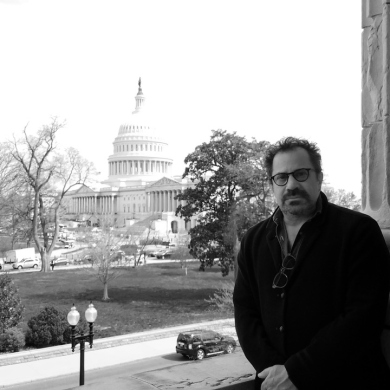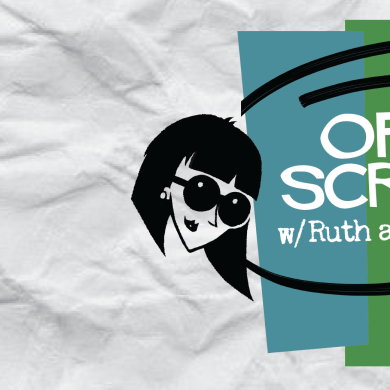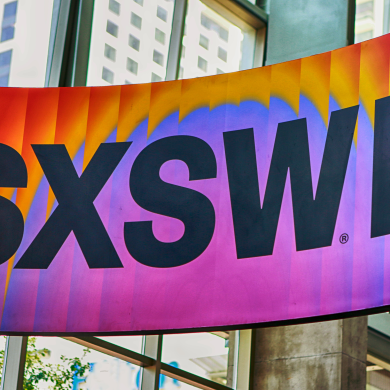By Ruth Vitale
As Europe’s Article 13 – and YouTube’s increasingly dirty efforts to stop it – has grabbed the lion’s share of copyright-related headlines in recent weeks, our government has quietly been stepping up its game against intellectual property theft here in the States.
In the ongoing trade battle with China, our government stood strong against the country’s penchant for stealing American intellectual property. In October, the President signed the Music Modernization Act into law, and last year, Vishal Amin, a talented lawyer whose selection was applauded by groups such as the Copyright Alliance and the Recording Industry Association of America, filled the position of Intellectual Property Enforcement Coordinator (IPEC).
In September, Mr. Amin asked the public how the government should revive and recharge IP protection policies that did not get adequate attention in the past. Like many of us, our government was once enamored of companies like Google and Facebook and could “see no evil” – despite their facilitation of rampant online piracy and other acts that have harmed America’s world-leading creative community.
Since then, as you might expect, organizations that have vested interests in copyright protection, such as CreativeFuture, the Independent Film & Television Alliance (IFTA), the American Intellectual Property Law Association, and the Motion Picture Association of America (MPAA) have submitted public comments to the IPEC alongside organizations that have vested interests in eliminating those same protections. Among this latter group, I was recently struck, and rather appalled, by the filing of one R Street Institute, a self-described “free market think tank” based in Washington.
R Street brands itself as “nonpartisan,” but based on the group’s notes to Mr. Amin, I see something different – a gaggle of young techies who fancy themselves on the cutting edge of “free market” intellectual property discourse, but who have clearly been seduced by the anti-copyright ethos pervasive in Silicon Valley. Look no further than their $78,000 grant awarded to the Copia Institute – an anti-copyright organization headed by Mike Masnick, a longtime antagonist of the creative industries and unquestioning supporter of all things Big Tech. It’s also no surprise that Copia is funded by Google – the undisputed enemy of all things copyright.

Any true “free marketer” knows that it’s not pro-free market to be anti-copyright. The free market model relies on a system where goods and services are traded legally and where all participants in that market act honestly and pay a fair price for what they are acquiring. In fact, the integrity of property interests is at the core of the Free Market economic philosophy.
A close reading of the Constitution makes the Founders’ stance on copyright as plain as day. In Article I, Section 8, it reads, “[Congress shall have power] to promote the progress of science and useful arts, by securing for limited times to authors and inventors the exclusive right to their respective writings and discoveries.”
Copyright is that exclusive right that allows progress to happen in America, and 250 years of Constitutional history has demonstrated this to be true. R Street acknowledges this, calling intellectual property “the backbone of nearly every industry in the United States.” But then it turns right around with a series of arguments that devalue the copyright protections of the creative industries, whose entire existence is based on intellectual property.
R Street asserts that the internet is promoting “new forms” of creativity, and that new internet-based revenue models are emerging – two claims with which I actually agree. But, I take major issue with the group’s “belief” that these “legal opportunities to consume content will lead to a decrease in piracy,” and that this argument weakens the obvious need for clear and enforceable laws to address piracy.
First of all, R Street’s “belief” is not supported by fact. A recent report from the internet research company Sandvine revealed that the explosion of “legal opportunities” to consume huge volumes of well-priced content from outlets such as Netflix, Amazon, Hulu, and dozens of other streaming outlets has failed to stem the attraction of piracy. Initially, these streaming alternatives to piracy did appear to help reduce the percentage of global online upstream content devoted to piracy websites like BitTorrent – to a low of just 26.83% by 2015. Since then, however, the number has risen rapidly again, to as high as 32% of total bandwidth consumption. And the aforementioned companies that are delivering these robust and affordable online services are among the victims.
The proliferation of viable streaming outlets has not, as R Street suggests, “curbed piracy.” On the contrary, “innovations” such as the “fully-loaded Kodi box” and other illegal streaming devices have made piracy easier and more user-friendly than ever before. A study from Digital TV Research shows that the film and television industry will lose $52 billion to online piracy by the year 2021.
But then, who cares if an industry that employs more than 2.1 million Americans loses billions to digital theft? According to R Street, “content creators [on YouTube] have seen steady increases in ticket, merchandise, and fan-club sales.” I certainly hope that’s true for the small percentage of creators who can actually make money that way – because there really is not any other way to make money on YouTube. The site pays out about a dollar for every 1,000 streams of a video. (Of course, YouTube itself makes billions from those same videos, which it does not own, and did not make.)

When not cynically positing YouTube as the savior of creatives everywhere, R Street’s filing makes odd arguments about copyright enforcement, condemning methods such as “targeting a single user whose IP address is associated with uploads of infringing content,” which they call “divisive” and “haphazard”. What makes this argument bogus is that it refers to efforts by rightsholders at the dawn of the internet to sue individual uploaders and downloaders of pirated materials. When Napster ruled the planet, there were some instances of this. But that was a lifetime ago, in internet years.
And R Street is flat wrong in its characterization of today’s copyright enforcement activities. Over the last several years, there has been a growing, global, synchronized effort led by organizations like the Alliance for Creativity and Entertainment (ACE), and parallel efforts in other regions around the globe, to pursue careful, data-driven enforcement strategies with increased effectiveness. Meanwhile, many countries have utilized piracy site-blocking measures to stunningly positive effect, and advertising agencies worldwide are working to suffocate illegal sites by cutting off their ad revenue. Far from “haphazard,” the increasingly sophisticated tools for enforcing copyright are impactful, effective, and necessary.
I am going to assume that R Street would have no trouble enforcing the law when it comes to stealing literally any product other than a copyrighted work. That is what makes a free market work, after all – people actually paying for goods and services. Why should copyrighted products made by creative industries that employ millions of Americans be any less valued within that economic system?
R Street seems to believe that it is just fine if piracy slashes the value of content, so long as a small percentage of creatives can still scratch a few bucks from ancillary revenues. But what meaningful ancillary revenues are available to independent filmmakers? Or video game designers? Or authors? Certainly, some musicians can make money playing concerts (though many still need to sell CDs at their events to make any decent money)… but for most creatives, the film or song or game or book is all they have to sell – and isn’t that how it is for anyone, making anything, in any industry?
As a believer in the free market myself, I can say that R Street’s anti-copyright, anti-innovation views are not free market. But it’s my role as a longtime executive in the independent film world that makes me most disappointed in R Street’s filing – because creativity transcends partisanship or economic theory. It’s the lifeblood of culture in America and a powerful economic driver for our country – and it needs strong copyright protections to thrive. This purportedly “free market” think tank wants to gut those protections.
Obviously, the people working at R Street are not dopes – in fact, we’re certain that they are quite accomplished and intelligent. But, we know that their argument is disingenuous at best. At worst, all you need to do is point to their support for the tech giants – which clouds their better judgment.
We suspect that they know better – no organization can exalt free market ideals and shrug their shoulders when it comes to the wholesale theft of legitimate goods.
They have got to know that their statements don’t hold any water – and if they do think that a free market and a criminal enterprise should coexist peacefully, well, they need to think a little harder.



